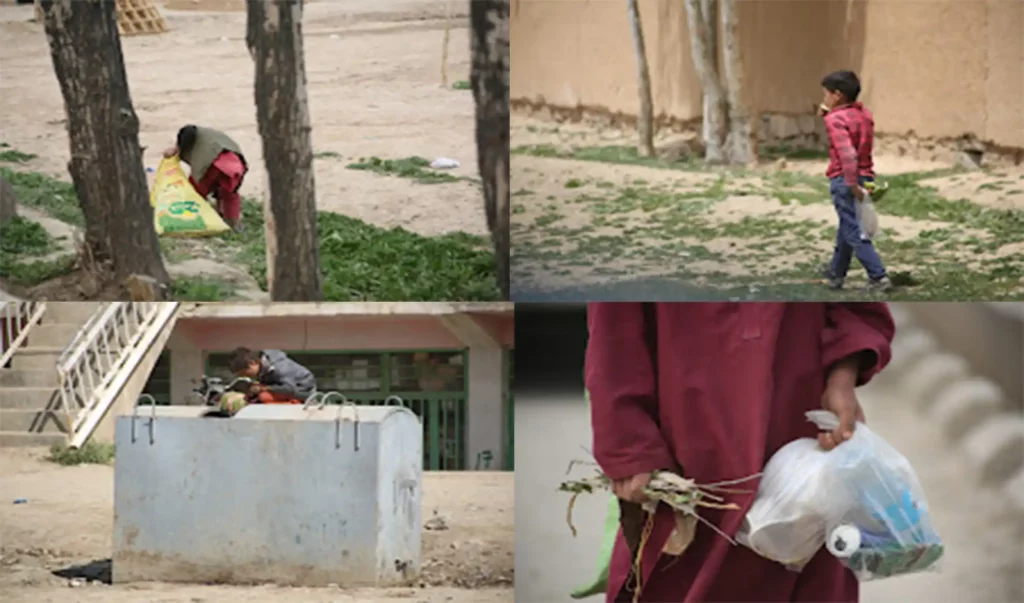FEROZKOH (Pajhwok): Doctors in western Ghor province call the throwing of medical waste in garbage a hazardous step, saying it triggers dangerous infectious diseases.
Dr. Mohammad Nasir Parsa, chief physician at the Ferozkoh Civil Hospital, told Pajhwok Afghan News: “Garbage generally creates microbes, but medical waste is even more dangerous, as it causes the spread of infectious diseases such as tuberculosis, brucellosis, black jaundice, skin ailments and other infections. This can threaten human life.”
Many patients, who have contracted infectious diseases due to contact with garbage, visit the main hospital in the provincial capital.
The doctor stressed all medical waste must be incinerated and kept away from people, especially children.
According to him, the hospital’s medical waste is disposed of in a special device and non-medical waste buried far from the city in coordination with the municipality.
Dr. Mohammad Arif Qazizada, an internal medicine specialist, also described the existence of medical and urban waste unsafe for people, especially children and women.
“Unfortunately, all of us are witnessing daily women and children collecting garbage in markets and streets due to poverty. Garbage endangers their lives, as they contract many diseases,” he argued.
Qazizada criticised the lack of specific garbage dumps in the city, as well as the negligence of some families and shopkeepers in throwing watse all around.
“Many people throw medical waste (medicines or serum bottles) in the streets. Its t is wrong practice that must be given up,” he insisted.
Mohammad Hamas, director of information and culture, said: “The Ghor Municipality is striving day and night to take urban waste and garbage up to 20 kilometers away from the city the environment clean and people safe.”
He lamented most families did not pay attention to cleanliness and hygiene in their neighbourhoods. He asked people to cooperate on preserving the environment.
Zubair, 13, who walks a long way daily, said he was collecting garbage due to poverty and starvation.
Not knowing that collecting medical and urban waste is a health hazard, he rummages through waste for food to eat, cartons and plastic materials and old iron to sell.
Zubair earns about 40 afghanis a day, collecting rubbish. He has been suffering from a skin disease for a month now and is undergoing medical treatment.
“My father is a drug addict. I have a mother and two sisters. My father frittered away all family belongings and left. My mother and I have to collect garbage and other things for selling and earning a living,” he added.
This boy wants to be able to go to school and study, but penury forced him to risk his life and work daily to support his family. He asked the Islamic Emirate and donor agencies for supporting his family.
Mohammad Anwar, 10, is another child who ekes out a living by collecting scrap, has fallen prey to TB. Undergoing treatment, he says: “Every day, I go to dumps to collect soda bottles, cartons, syringes and serum bottles. I sell them and earn up to 30 afs a day.”
The minor recalled: “When I got sick, doctors said I have caught a disease due to frequent contact with garbage.”
Bibi Naz, a 40-year-old woman who has to feed her children by collecting garbage from the city, said she had fallen ill due to the practice.
She also urged the Islamic Emirate to focus on supporting resourceless families and whose children were deprived of an education.
Bibi Naz, having two sons aged 12 and 14 and an eight-year-old daughter, said her husband had died of cancer three years ago. She has since been the sole breadwinner for her children.
sa/mud








GET IN TOUCH
NEWSLETTER
SUGGEST A STORY
PAJHWOK MOBILE APP